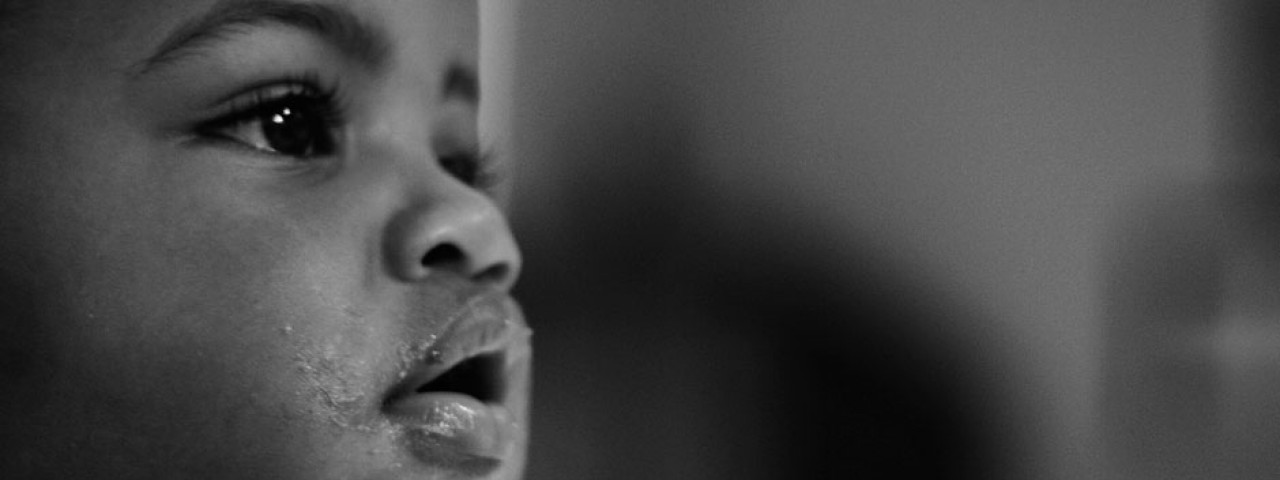A city that fears its own children is poised for calamity.
That fear is an inescapable underpinning in casual conversations, comments in the Daily Memphian and on social media, weekly emails from the mayor, campaign rhetoric, and statements by civic leaders.
It permeates comments about juvenile crime that regularly skew toward the apocalyptic and often the hysterical, in reports about students that position them as problems rather than competitive advantages, and the treatment of child poverty as intractable and insolvable.
Lost in the whirlwind of emotion is context.
Tale of the Tape
Here’s context:
1,787 – number of juveniles charged in 2022, including felonies and misdemeanors
544 – number of juveniles arrested for serious charges
155,264 – population of Memphis 18 years old and younger
50,771 – number of Memphians under 18 years old living in poverty – 1 out of 3 children
In other words, almost 99% of the young population of Memphis were not charged last year. Contrary to the rhetoric, particularly from the mayor’s office, about the revolving door of the criminal justice system, the majority of those juveniles charged in 2022 were first-offenders.
If you prefer to only consider the population between the ages of 10 and 17, about half of juveniles are in that age group, and it still means that 98% of them were not involved in juvenile charges.
Children At Risk
More than 100 years ago, abolitionist leader Frederick Douglass said it is easier to build strong children than to repair broken adults. More recently, Harvard economist Ed Glaeser, when asked for his advice for cities’ futures, said: “It’s fundamentally about kids. You really want to be investing in children.”
Some years ago, the Urban Child Institute was conducting the community’s first intensive research into the risk factors in early childhood that reduce a child’s positive options for the future, particularly how our youngest children living with persistent toxic stress face barriers that ripple through the rest of their lives.
In calculating the risk factors attached to toxic stress, I said to the Urban Child Institute researcher that it is remarkable how many Memphis children were affected as shown in poor classroom learning or in delinquency. Her reply: “Considering how many children in Memphis are in this category, what is truly remarkable is how many of them rise above it.”
Memphis is fortunate – or blessed, in the words of some – that it has numerous programs working on early childhood development, those operated by nonprofit organizations, churches, city government, and Memphis-Shelby County School District.
There’s no argument that there is serious work to be done. We were reminded of this with the recent release of the annual County Profiles in Child Well-Being by Tennessee Commission on Children and Youth. The child well-being scores are based on 52 indicators including economy, education, health, and family and community.
Shelby County was ranked among the 10 Tennessee counties with the greatest need for improvement. Overall, the well-being of our children was ranked second from the bottom of all of Tennessee’s 95 counties – #93.
Shelby County’s Poor Rankings
Among all of the state’s counties, Shelby County was ranked third from the bottom – #92 – in children’s economic well-being. Under that heading, Shelby County was dead last in severe housing cost, #68 in children living in poverty, and #77 in child cost burden.
Under education, Shelby County ranks 91st. It is #70 in third to eighth grade reading proficiency, #78 in third to eighth grade math proficiency, and #94 in youth graduating high school on time (82.4%).
In the category of health, Shelby County children rank #93. This includes ranking #91 who are food insecure, #48 in children who lack health insurance, and #93 in babies born at low birthweight.
Shelby County ranks highest in family and community – #74. We are #90 in children living in single parent families, #73 in children chronically absent from school, and #12 in victims of abuse or neglect per 1,000.
We Know What We Need To Know
The Child Well-Being Report is essentially a slap of realism in our faces in how far our community still has to go to make progress in our most challenging indicators. After all, we have been working for decades on these interwoven issues with limited success.
Most of all, it poses the fundamental question: if we can’t even compete against Tennessee’s counties, how are we supposed to compete against comparable cities?
It’s why the current discussion by Memphis City Council to increase the city property tax rate – which is at its lowest in 32 years – is timely and the right subject at the right time for Memphis. We know the programs that are working and can make the biggest difference in improving young children’s odds for the future, but we also know they all need more money to intervene in more lives and to have greater impact through individualized solutions. There is a direct line between the success of these programs and improvements in opportunity and reduced juvenile crime.
The good news is that we have no learning curve when it comes to understanding the factors that can shape the outcomes for children’s futures, including Adverse Childhood Experiences (ACE) and epigenetics.
The Urban Child Institute led the research in both areas 11 years ago and it was eye-opening and profound and it was incorporated into former Memphis Mayor A C Wharton’s Blueprint for Prosperity plan to reduce the poverty rate by 10 points in 10 years. Unfortunately, the plan didn’t go forward following his election defeat.
ACEs are traumatic events between the ages of one and 17 years that affect brain development and can produce toxic stress (long-term or extreme stress). Traumatic events include natural disasters, domestic violence, shootings, extreme poverty, bullying, witnessing violence, sexual abuse, serious injuries, divorce, drug use in the family, and loss of a family member.
When young children grow up in toxic environments, their brains naturally make survival the top priority, which means that other areas that control other functions like reasoning take lower priority.
Running Up The Risk
The greater the number of adverse childhood experiences a child endures the greater the risk of learning difficulties, fear of other people, homelessness or moving frequently, financial hardship, difficulty showing affection, anxiety, depression, substance use, lack of emotional control, lashing out, and more. The extreme stress on a child’s body can even have a toll on physical health as stress hormones are released constantly, increasing heart rate, changing breathing patterns and change vision and more.
Our community was involved in the creation of state government’s “The Building Strong Brains: Tennessee ACEs Initiative.” It said: “The importance of making this pivot from after-the-fact treatment toward early ACE intervention/prevention is difficult to overstate. The journal of the American Academy of Pediatrics puts it this way:
“Advances in the study of toxic stress represent a paradigm shift in our understanding of health across the human lifespan. Although debates about early childhood policy today focus almost entirely on education objectives, science now indicates that sound investment in interventions that reduce toxic stress and childhood adversity are likely to strengthen the foundation of physical and mental health and generate even larger returns for all of society.’
Compounding the negative impact of toxic stress is the strong evidence that it can alter genes passed down from parent to child. Scientists have discovered that a child’s environment from conception to early childhood affects a child’s biology by creating toxic stress that becomes biological memories. It is known as a phenomenon called epigenetics, the study of changes in gene activity that do not involve alterations to the genetic code itself, but is a mechanism that can account for how early stress can result in long term consequences. In other words, epigenetics helps explain how powerful negative environmental and home conditions – diet, stress, prenatal nutrition – can leave an imprint on genetic material that can result in adult health issues years later. Conversely, positive early childhood experiences can help protect a child from stress related responses that potentially could have adverse effects.
Traumatized at Birth
Author of two books on brain development and early childhood Robin Karr-Morse said in a presentation in Memphis a decade ago sponsored by the Urban Child Institute: ““What happens emotionally affects us physically,” she said. “Healthy, healing experiences protect us against disease. The opposite is also true – the emotion/disease connection. Seventy percent of the causes of disease are epigenetics.”
In other words, she said epigenetic changes are a biological response to an environmental stressor, but it is not DNA. “When someone has neither the option of flight or fight, terror in the face of helplessness results in a freeze,” said Ms. Karr-Morse. “Trauma is fear frozen in the body physically. Babies can be born traumatized at birth.”
Epigenetics don’t cause genetic mutation but it does alter the mechanism in which genes are expressed – that’s why it’s not genetic; it’s epigenetic. It’s been described as the light switch that turns genes on or off. In other wors, epigenetics control how and why genes are expressed.
Now What?
So what does all this mean for Memphis?
First, we know more than we think we know.
Second, it cannot just be knowledge for knowledge’s sake but be the basis for action on a citywide basis.
Third, there’s no time like the present to create an agenda – a sustained agenda that continues over decades – that improves the odds for the city’s children because it is in everyone’s best interest.
A child born in a high-poverty neighborhood in Memphis has only a four percent chance of moving from the bottom 20% to the top 20% and these are the worst odds for any major city in the continental U.S. And if the child’s neighborhood is one that defines his life by toxic stress, his opportunities for the future are further dimmed.
Here’s the thing: despite all the rhetoric over the years to the contrary, geography in Memphis is indeed destiny.
The vast majority of them are never involved with the justice system, and yet, too many of them are sent the message that their own city places little value in them. They see it in their disinvested neighborhoods, in the violence, in their fear of harsh policing, and in unimproved schools.
They deserve to be sent a different message and that’s why Memphis City Council members are to be commended in considering a tax increase to produce the revenues for programs that can make a difference in their lives. It’s the smartest investment they can make.
***
Join us at the Smart City Memphis Facebook page and on Instagram for daily articles, reports, and commentaries that are relevant to Memphis.



